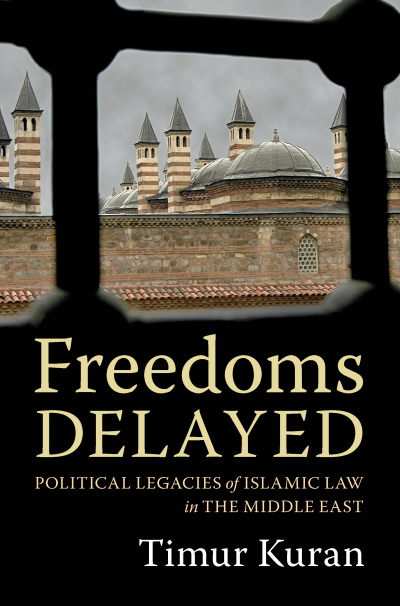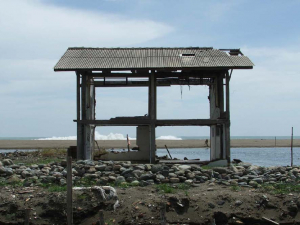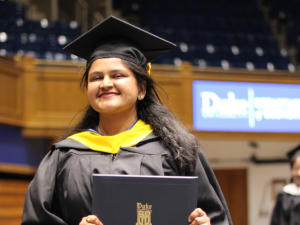Timur Kuran Explores the Political Impact of Islam on the Middle East in New Book

According to Timur Kuran, there isn’t a single democracy in the Middle East, which he defines as all 22 Arab states, plus Iran and Turkey. The region ranks below every other region in indices that measure political freedoms, civic life and religious freedoms.
Many have claimed that Islam is the reason for the lack of democracy. But in “Freedoms Delayed: Political Legacies of Islamic Law in the Middle East” — Kuran’s seventh book, whose e-format will be released on July 20 — the Professor of Economics and Political Science and Gorter Family Professor of Islamic Studies offers a more nuanced view.
“That claim doesn't really hold water,” Kuran says. “In the Middle Ages, all religions were repressive. Religious freedoms were not advanced anywhere. Inquisitions took place in Europe, not the Middle East.”
However, some other regions were able to institute a separation of religion and state. The Middle East did not.
Kuran attributes the Middle East’s failure to advance personal freedoms to several factors. The first is that, until modern times, the region lacked merchant organizations.
Merchants were critical in establishing democracies in Europe. Their size, the resources they controlled and their ability to form coalitions allowed them to put pressure on the state. In Britain, for instance, merchants gained seats in Parliament and started negotiating with landowners.
"When political power is divided among groups with different interests and economic bases, checks and balances begin to develop,” says Kuran. “Decisions that matter to the masses start involving negotiations and compromise between ruler and the ruled. That's the essence of democracy, and it’s what the Middle East was lacking.”
A second factor was that in the Middle East until modern times, social services were supplied through Islamic trusts, or “waqfs.” Unlike the charitable corporations established in Europe to fund analogous social services, waqfs were rigid organizations,” Kuran says.”
They were governed in perpetuity according to deeds that contained the founder’s instructions. They could not form coalitions with other waqfs. As a result, Kuran argues, waqfs could not adapt to changing conditions in the region. Waqfs were also apolitical, meaning they could not be used for any purpose that the government could deem seditious. Their beneficiaries had no say in the services they offered. They were to accept with gratitude whatever services they received. “A consequence was that a vicious cycle was created in the Middle East,” Kuran says. “Civil society remained weak, which then kept waqfs rigid and politically powerless.” Even though waqfs controlled enormous resources, they did not facilitate liberalization.
“This wasn't the case with the corporations that were established in Europe,” says Kuran. “They could participate in politics and negotiate with rulers. Their beneficiaries could influence what services they provided. So a virtuous liberalization cycle emerged.”
In short, Kuran says, waqfs hindered the emergence of checks and balances that developed in places that benefited from autonomous private organizations with political power.
While Islamic waqfs are not a direct cause of repression in the Middle East anymore — they were dismantled in the 19th century, Kuran explains — their legacy endures, because it takes many generations to develop the skills and norms of a strong civil society.
A third major factor contributing to the Middle East’s repressiveness is “Islam’s apostasy, blasphemy and heresy rules,” Kuran says. “They make people afraid to speak honestly.”
Since religion is closely intertwined with the state, it is difficult for resistance movements to gain strength, he says.
“In the United States and Western Europe, you can find mosques, institutes, and thinktanks that promote a liberal Islamic ideas, but they haven't had appreciable impact on religious interpretations in the Middle East,” he adds.
One indicator of the dominance of illiberal interpretations of Islam is the absence of liberal schisms. The headline-grabbing schisms in Middle Eastern Islam have been ones demanding more strictness and fewer freedoms. They include ISIS andr the Muslim Brotherhood, both of which are hostile to women’s rights. Kuran says that this asymmetry is not driven by a centralized religious hierarchy. “Islam is a very decentralized religion,” Kuran says, “but that’s consistent with huge power over freedoms of speech and association.
Given these historical legacies, what does Kuran see as the future of the Middle East?
“Repressive and restrictive regimes are tough to beat,” says Kuran, “so there’s no quick fix.” Still, he’s hopeful for the future. There is room for optimism, because the institutional structure for a strengthening civic life is already in place.
“Middle Eastern liberalization is not an oxymoron,” Kuran suggests. “Liberalization on many fronts is possible. The processes will take a long time — possibly generations — but the status quo is not unchangeable.”




